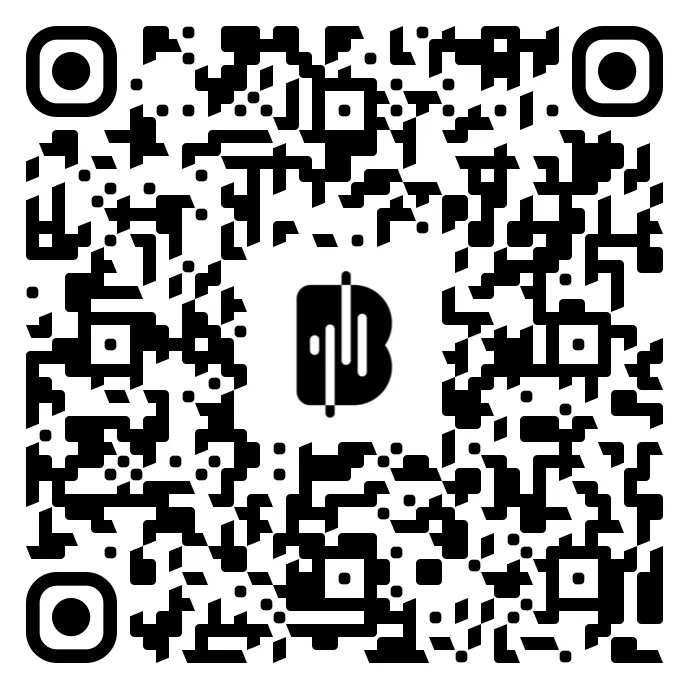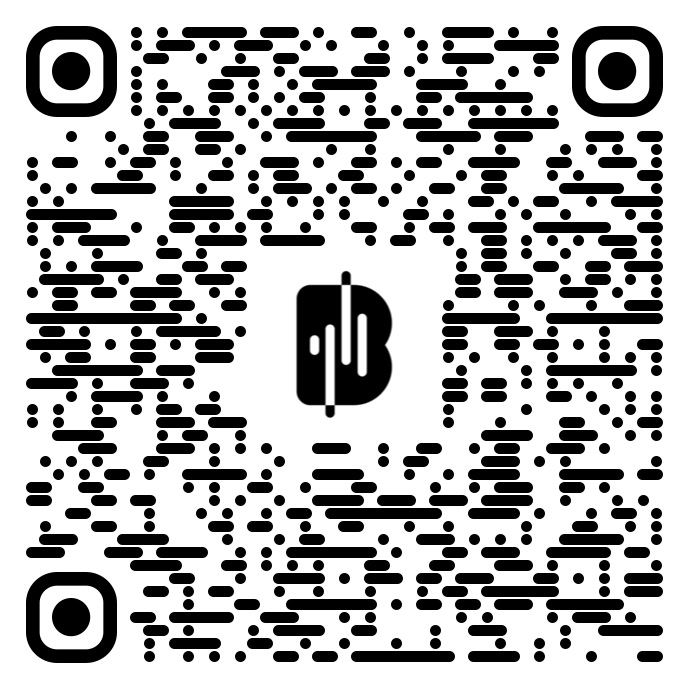In English, simple verbs are sometimes combined with prepositions and adverbs to create more complex meanings. These combinations are known as phrasal verbs, and they have become an essential part of everyday conversations .
For example, combining "to pull" (to draw towards you) and "over" creates "to pull over," which means to move a vehicle to the side of the road and stop. These phrasal verbs can drastically enhance your communication, and they go a long ay to helping you sound more natural when you speak.
English phrasal verbs can be either separable or inseparable, and transitive or intransitive. To dive into the intricacies of phrasal verbs and the various types, check out our comprehensive guide to phrasal verbs to help you master the concept.
Without further ado, here are the top 100 phrasal verbs that every English learner should know.
1. Act Up To "act up" is an inseparable phrasal verb used to describe something that is misbehaving or not functioning properly.
"During the video call with our clients, my computer began to act up."
2. Add Up To "add up” means to either calculate a total, or to make sense. It is a separable phrasal verb, meaning you can insert a word in between "add" and "up" and the phrase will still sound natural and logical.
"I listened to his story, and the details just didn't add up."
3. Ask Out This separable phrasal verb on our phrasal verbs list simply means to invite someone on a date.
“He finally asked her out for dinner.”
4. Back Down To "back down” is an inseparable verb that means to pull away or give up in a confrontation or debate.
"He backed down after seeing the other side's strong arguments."
5. Blow Up This separable phrasal verb means to explode, either literally or figuratively .
"The demolition blew up the building."
Take your free accent assessment Get to know your pronunciation level and get 7 days of lessons for free on the BoldVoice app.
Start Free Trial
6. Break Down This is a separable term that means either to stop functioning, or to separate something into parts.
When it refers to something that has stopped functioning, this phrasal verb also works in both a literal or a figurative sense.
"He broke down and cried when he learned that his girlfriend had left him."
7. Break Up “Break up” means to end a relationship or to disperse something into smaller parts. The terms cannot be separated.
"They broke up after five years."
8. Bring Up This is a separable phrasal verb that means to introduce or mention a topic for discussion.
"She brought the subject up at the meeting."
9. Call Off To "call off" is a separable verb that means to cancel or stop something that was planned.
“They called off the meeting because of the storm."
10. Calm Down “Calm down” means to become less angry, upset, or excited. It is an Inseparable phrasal verb.
“Please calm down; you're making too much noise.”
11. Carry On This phrase is inseparable, and it implies maintaining or continuing a task.
"Despite the interruptions, she carried on with her presentation."
12. Check In When you check in, you register your arrival or report your presence. This verb is inseparable, and especially useful in a
"We need to check in at the hotel by 3 PM."
13. Check Out This separable phrasal verb is used to express the concept of examining something.
“You should check out the new software.”
14. Come Across To "come across" is an inseparable phrasal verb that refers to finding or discovering something unexpectedly.
"I came across an interesting article while browsing online."
15. Come Up With This inseparable phrasal verb means to produce an idea, solution, or plan.
It's transitive, meaning that it must be followed by an object. In the following example, the object is "a solution."
“We need to come up with a solution to this problem.”
16. Count On This verb means to rely on someone or something. It cannot be separated.
“You can count on me to help you out.”
17. Cut Down To “cut down” is a separable verb that means to reduce the size or amount of something.
“I'm trying to cut down my sugar intake.”
18. Deal With To “deal with” something means to handle or manage something, often a problem or situation. It is an inseparable, transitive verb.
“The customer service team is trained to deal with difficult customers.”
19. Do Away With When you “do away with” something, you’re permanently removing it. It is inseparable.
"They want to do away with homework."
20. Do Over This is a separable phrasal verb meaning to redo something or perform it again.
“I need to do the assignment over."
21. Drop By This inseparable phrasal verb means to visit a person or place briefly and informally, often without a prior appointment. It is inseparable.
"I was in the neighborhood, so I decided to drop by to see you."
22. Drop Off To deliver or leave something or someone at a particular place. This phrasal verb can be separated.
"Can you drop the kids off at school?”
23. Eat Out To "eat out" means to go to a restaurant to have a meal instead of eating at home. It is inseparable.
"How about eating out tonight? It’ll be a nice change."
24. Edge Out A separable phrasal verb that means to win by a small margin in a competition.
“In the chess tournament, Maria edged out her opponent.”
25. End Up This is one of the most common phrasal verbs in English. It indicates reaching an unexpected situation or place, often due to a series of events. This phrase is also inseparable.
"We took a wrong turn and ended up at a beautiful hidden waterfall."
26. Fall Apart When something falls apart, it breaks into pieces or becomes disorganized and deteriorated. It is one of English's inseparable phrasal verbs.
"The old book fell apart after years of handling."
27. Fall For This inseparable phrasal verb means to be deceived by something. Alternatively, when you "fall for" a person, you develop strong feelings of affection or love for them.
“He fell for the scam and lost all his savings.”
28. Figure Out When you figure out something, you solve it or understand it after careful thought. This phrasal verb is separable.
“I need to figure out how phrasal verbs work before the big exam.”
29. Find Out Another inseparable verb on our phrasal verbs list is to “find out." This verb refers to discovering or learning new information.
"He found out the news through a friend."
30. Get Along This inseparable phrasal verb refers to having a friendly and harmonious relationship with someone.
"They get along really well despite their differences."
31. Get Away To "get away" is an inseparable term that means to escape.
"The criminals managed to get away from the scene."
32. Get By One of the intransitive phrasal verbs on the list, this describes managing or surviving despite limited resources or challenging conditions.
"Even with a tight budget, they manage to get by each month."
33. Give Back To "give back" means to return something to its owner.
Separable and typically transitive, this phrasal verb takes a direct object.
"I gave the book back to her."
34. Give In To "give in" is an inseparable phrasal verb meaning to surrender or yield to someone or something.
"After hours of negotiation, he finally gave in to their demands."
35. Give Up This inseparable phrasal verb means to stop trying or surrender.
"He decided to give up on the project"
35. Give Up On To "give up on" means to stop trying to improve, help, or have faith in someone or something. It is inseparable.
"She gave up on the project after many setbacks."
37. Go On This is another inseparable phrasal verb that means to continue doing something.
"She paused to collect her thoughts, then went on with her presentation."
38. Go Over To "go over" something means to review or examine it carefully, often to ensure accuracy or thorough understanding. This is one of the transitive phrasal verbs on the list, and it cannot be separated.
"The teacher will go over the answers to the test tomorrow."
39. Grow Up This simply means to mature or age. It can also refer to behaving in an adult-like manner. Another of English's intransitive phrasal verbs, it does not take a direct object.
"It's time for you to grow up and take responsibility for your actions."
40. Hang On “Hang on” is an inseparable phrasal verb that means to wait for a short time or to hold onto something tightly.
"Hang on a minute while I check the details."
41. Hang Out When you "hang out," you spend time casually relaxing or socializing with friends. This is one of our inseparable phrasal verbs.
"On weekends, we like to hang out at the park and catch up."
42. Hang Up This means to end a phone call. It is an inseparable term commonly used casually and by professionals like call center agents .
"She hung up the phone after the conversation with the customer."
43. Head Out An inseparable verb on our phrasal verbs list that means to leave a place and go towards a new destination.
"We should head out early to avoid the traffic."
44. Hit the Road This mid-20th-century phrase symbolizes the excitement of travel. When you “hit the road,” you’re embarking on a journey or leaving a place.
"As soon as the sun rose, we hit the road to make the most of our weekend getaway."
45. Hold On As an inseparable phrasal verb, “hold on” means to wait for a short time. Alternatively, it can be taken more literally for a new meaning to grip something tightly.
"Hold on a minute while I grab my coat."
46. Identify With To "identify with" something means to feel a connection or sense of similarity with someone or something. It is an inseparable phrasal verb, and one of the transitive phrasal verbs on our list since it takes a direct object.
"She identifies with the main character in the book because they share similar life experiences."
47. Iron Out “Iron out" is a separable phrasal verb which represents resolving or clarifying details.
"We need to iron the details out before finalizing the plan."
48. Joke Around To "joke around" means to playfully tease or make humorous remarks, often in a casual or lighthearted way. It is inseparable.
"The kids spent the afternoon joking around and having fun at the park."
49. Jot Down This is an inseparable phrasal verb that means to quickly write something briefly or make a quick note.
“Let me jot down your phone number before I forget it.”
50. Keep Up To "keep up" means to continue or to stay at the same level. It is inseparable.
"He struggled to keep up with the pace."
51. Knock Down To "knock down" means to destroy or demolish something by hitting it with force. It is one of the separable phrasal verbs on this list, and it can be used both literally and metaphorically.
"They knocked the old warehouse down."
52. Look After This is an inseparable phrasal verb that means taking care of something or someone, ensuring their needs are met.
"She looks after her younger brother while their parents are at work."
53. Look Down On "To "look down on" means to view someone or something with a sense of superiority or disdain. This inseparable phrasal verb expresses a judgmental attitude.
"He tends to look down on people who don't have a formal education."
54. Look For This phrase means to search for or seek something, and it is one of the English phrasal verbs that cannot be separated.
"He’s looking for his keys."
55. Look Into This is another one of the most common phrasal verbs in American English . It is an Inseparable term that means to investigate something.
"The police are looking into the case."
56. Look Out "Look out" means to be cautious or to watch for something. This phrase cannot be separated.
"Look out for cars while crossing the street."
57. Look Up The last of the “look” verbs on our phrasal verbs list, this phrase is a separable verb that means to search for information.
"She didn't know where the museum was, so she looked it up."
58. Make Over This is an inseparable phrasal verb that refers to the act of renovating or transforming something. It is transitive.
“We're going to make over the treehouse.”
59. Make up To "make up" means to invent something, and this verb ise separable.
“She made up the story off the top of her head."
60. Move On This inseparable, intransitive phrase means to progress or leave behind a past situation.
"He chose to move on after the breakup and focus on his career."
61. Name After To "name after" involves giving someone or something the same name as another person or thing, usually in their honor or memory. It can be separated.
"They named their daughter after their grandmother."
62. Narrow Down This separable verb means to reduce the number of options or possibilities to a more specific range.
"We need to narrow the options down to three finalists."
63. Opt For To "opt for" something is to select or choose a particular option from several available choices. This phrase cannot be separated, and it does require a direct object.
"He chose to opt for the early flight to avoid traffic."
64. Open Up To "open up" means to reveal or make something accessible.
When used to discuss sentiments it is inseparable, however in more literal contexts it's one of our separable phrasal verbs.
“He finally opened up about his feelings.”
65. Pass Away This inseparable phrase is a euphemism for dying.
"Her grandfather passed away peacefully."
66. Pass out "Pass out" is used as an inseparable phrasal verb when referring to losing consciousness.
Alternatively, it becomes a separable phrasal verb when used in the context of distributing something, like a flyer or pamphlet.
"He passed out after standing in the hot sun for too long."
67. Pick Up This is a separable term that means either to collect or to improve something.
"She picked up the groceries on her way home."
68. Put Away Also on this phrasal verbs list is to "put away." “Put away” is separable, and it means to store or to save.
"She put the clothes away in the closet."
69. Put Off "Put off" refers to delaying or postponing something. This phrase is separable and transitive.
"They put the meeting off until next week."
70. Put On This separable phrasal verb means to wear or to apply.
"She put her coat on before going outside."
71. Put Up Meaning to accommodate something or someone, this phrasal verb is separable. Assuming you’re expecting guests for Thanksgiving , for instance, you might offer to put them up so they don't need to drive home afterwards.
"We put up our guests for the night."
Note that this phrasal verb takes on a different meaning when you add the word "with." To "put up with" something is to tolerate something.
72. Quibble Over “Quibble over" is an inseparable verb that means to argue or raise objections about minor or trivial details.
“They continued to quibble over the details of the contract instead of focusing on the main issues."
73. Reach Out To "reach out" involves making contact with someone, typically to offer help, support, or establish communication. This phrase cannot be separated.
"She decided to reach out to her old friends to reconnect and catch up."
74. Round Up To "round up" involves gathering together or collecting items, people, or information. This separable phrasal verb can also mean to summarize or review information.
"The police rounded up the suspects."
75. Rub Off As an inseparable term, “rub off” means to transfer a quality or characteristic to someone else.
"His optimism rubbed off on the whole team."
76. Run Into "Run into" is an inseparable term that means to encounter unexpectedly, or more literally, to crash into.
"I ran into an old friend at the store."
77. Run Out Of It means to deplete or exhaust a supply. “Run out of” cannot be separated.
"We ran out of milk, so we had to go to the store."
76. Set Up To "set up" simply means to arrange something (like a meeting). It’s a separable phrasal verb.
"She set up the meeting on Tuesday."
79. Show Off This separable verb on our phrasal verbs list means to proudly display something for all to see.
“He was excited to show off his new car.”
80. Show Up When you "show up" you arrive or appear, often unexpectedly. It is Inseparable.
"He showed up late to the party."
81. Stick To This inseparable phrase means to keep focused on something without changing.
“She stuck to her exercise routine, even on vacation.”
82. Take After "Take after" is an inseparable verb that means to resemble another person in appearance or behavior.
"She's stubborn; she takes after her mother."
83. Take Off "Take off" usually means to remove, and it typically refers to articles of clothing. Occasionally it will mean to ascend usually in the context of an aircraft.
"He took his shoes off."
84. Throw Away This phrase means to discard something. “Throw away” is a separable phrasal verb.
"Don't throw this chance away."
85. Turn Down When you turn down something, you reject it. This term is a separable phrasal verb.
"She turned down the offer."
86. Turn Up This separable, transitive phrasal verb means to significantly increase something.
"He turned the heat up."
87. Under Control To be “under control” means a situation is manageable or being handled successfully. It cannot be separated.
“The fire is finally under control.”
88. Use Up “Use up” is a separable phrasal verb. It means to use something until there is no more supply.
“We've used up all the milk."
89. Vouch For To guarantee or confirm something or someone's good character or quality, you vouch for them. This phrase is inseparable and transitive.
“I can vouch for her honesty.”
90. Vie For This phrasal verb is inseparable and transitive, meaning to compete strongly with others for something.
“Several companies are vying for the government contract.”
91. Wake Up To "wake up" means to stop sleeping or to become alert. It can be separated.
"He woke the baby up early from her nap."
92. Warm Up Also on this phrasal verbs list is “warm up”. This separable verb means to prepare for physical activity, or to become more comfortable with something or someone.
“She warmed up her muscles before running."
93. Wear Out When something becomes unusable due to overuse, we say it is "worn out."
"He wore his shoes out from all of the marathon training he was doing."
94. Work On “Work on” is an inseparable verb and it means to improve or develop something.
"She’s working on a new project."
95. Work Out This means to resolve a problem, or to perform physical exercise. It can be separated.
"He worked out the kinks in the new project."
96. Write Down To "write down" means to record or document information on paper. It is a separable phrasal verb.
"She wrote down the most important points."
97. Zero In On “Zero in on” is an inseparable phrasal verb that means to focus all attention or effort on something specific.
"The detective team zeroed in on the suspect's alibi as they got closer to solving the case.”
98. Zip Up This separable phrasal verb means to fasten something with a zipper.
“She zipped up her jacket before going outside."
99. Zoom in “Zoom in” is an inseparable verb that means to focus on a specific detail or area, often used for images or videos.
“The detective zoomed in on the suspect's face in the security footage.”
100. Zoom Out The opposite of “zoom in,” to “zoom out” means to widen the view or perspective. This verb is also inseparable.
“The camera zoomed out to reveal the entire city skyline.”
Master Phrasal Verbs with BoldVoice Like it or not, phrasal verbs are important and using them can greatly improve your communication skills. This phrasal verbs list is designed to give you a solid foundation as you expand your vocabulary bank in everyday English.
The more you practice them in sentences, the sooner they'll become a natural part of your speech. For more tips and practice to perfect your English pronunciation and fluency, check out the BoldVoice app .
BoldVoice is an accent training app that can help you perfect your use of phrasal verbs and use them naturally, like a native speaker. Sign up for a free 7-day trial to take your English to the next level.









